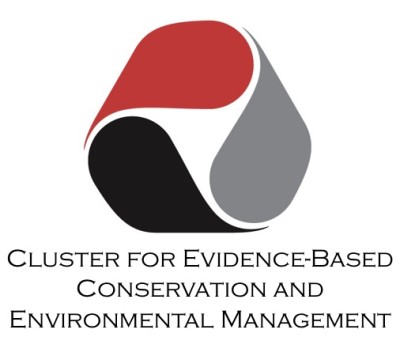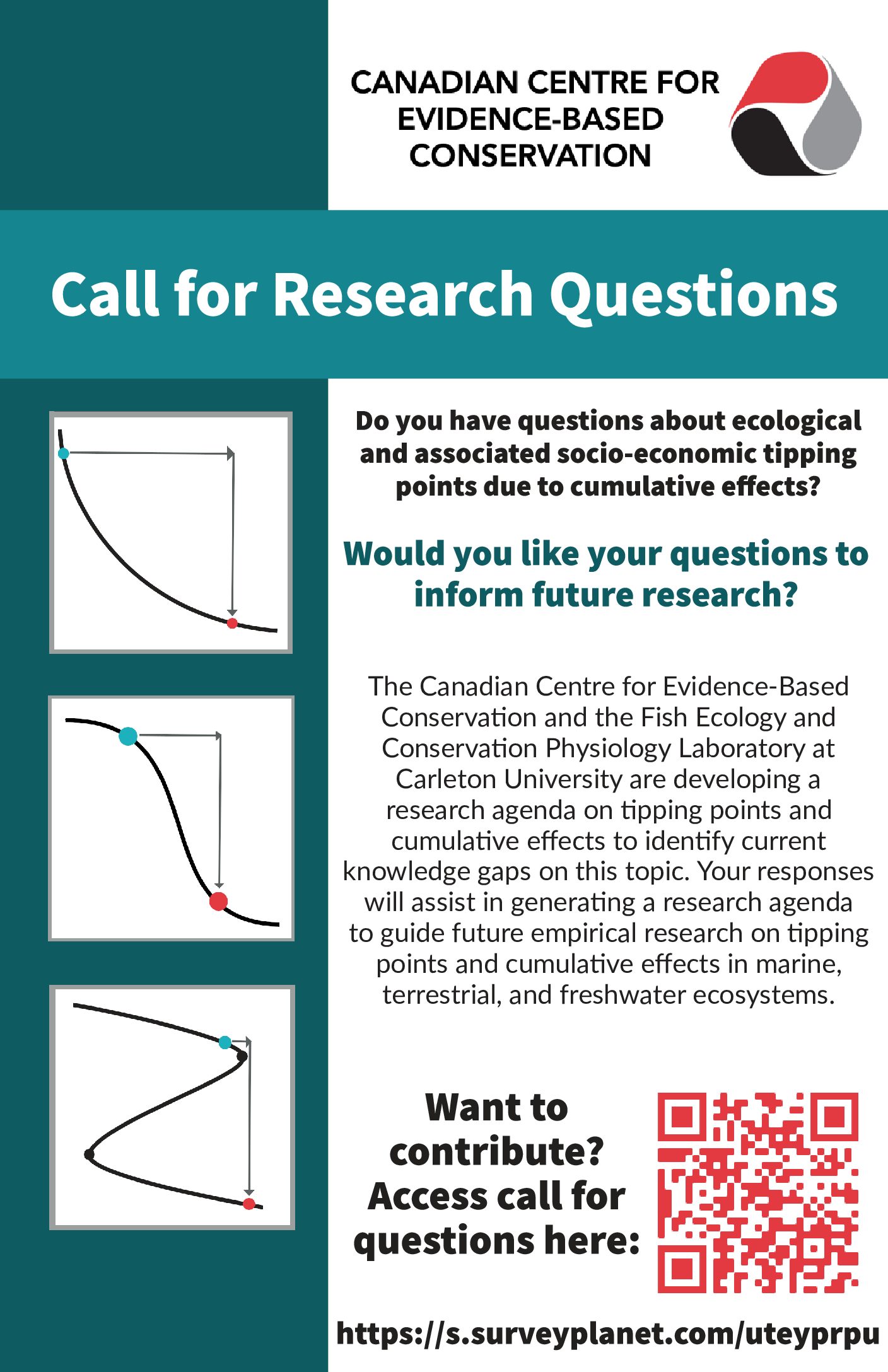Funded By
Research Team
Dr. Steven Cooke – Carleton University
Lisa Donaldson – Carleton University
Jessica Taylor – Carleton University
Dr. Trina Rytwinski – Carleton University
Dirk Algera – Carleton University
Dr. Joseph Bennett – Carleton University
Laura Elmer – Carleton University
Previous Team Members
Maja Cvetkovic – Carleton University
Dr. Alex Wilson – Carleton University
Research Summary
In recent years, it has become increasingly apparent that objective scientific evidence and information synthesis is essential for supporting important policy and management decisions by environmental and conservation professionals. A seminal paper by Pullin et al. (2004; Biol Conserv. 119:245-252) discussed how environmental management actions were largely not based on the best available evidence, but instead on previous practitioner experience. Such dogma has therefore resulted in vast repositories of information being neglected and/or overlooked entirely by policy makers. Using the evidence-based approaches that have revolutionized the global medical system (i.e., Cochrane Reviews) the field of conservation science and environmental management is currently undergoing a paradigm shift towards adaptive new procedures that provide the critical syntheses needed to properly inform policy and management decisions.
Systematic reviews address this need by ensuring accessibility to the best available evidence, yielding more-efficient and less-biased summaries of evidence that can support and direct decision making. This shift in procedural output works towards ensuring that management interventions and policy are more likely to achieve evidence-based outcomes and allocate precious human and financial resources more effectively. Systematic reviews are generated through a structured, rigorous and repeatable process that involves identification of key questions, evidence assimilation, critical appraisal and analysis. Systematic reviews not only inform whether a given intervention is effective, but also identify effect modifiers (e.g., only effective in X ecoregions) and knowledge gaps.
Description of Work
We are currently conducting two systematic reviews focused on evaluating: (1) the extent to which different types of fish removal activities targeted towards introduced or invasive species are effective; and (2) the effectiveness of spawning habitat creation/enhancement for substrate spawning north temperate fish.
For each review, specific tasks include:
- Follow the methods for systematic review outlined by the Collaboration for Environmental Evidence in the UK
- Assemble a database of relevant literature and information that will serve as the basis for the review
- Evaluate the evidence to determine the extent to which it is credible
- Synthesize credible information using appropriate meta-analytical tools
- Generate a report summarizing the findings and knowledge gaps
Significance
The two systematic reviews will directly provide evidence-based support for management decision-making moving forward in Parks Canada, DFO, and/or other natural resource management groups in Canada and around the globe.
Systematic Review Projects
(1) The effectiveness of non-native fish eradication techniques in freshwater ecosystems: a systematic review
Project Collaborators
Parks Canada (Steering Committee) – Kent Prior, Marlow Pellatt, Mark Taylor, Bill Hunt, Chantal Vis, Garry Scrimgeour, Scott Parker and Shelley Humphries
Dr. David Browne – Canadian Wildlife Federation, Canada
Dr. Robert Gresswell – U.S. Geological Survey, USA
Dr. Mark Lintermans – University of Canberra, Austraila
Dr. Robert Britton – Bournemouth University, UK
(2) The effectiveness of spawning habitat creation for substrate spawning north temperate fish: a systematic review
Project Collaborators
Fisheries and Oceans Canada (Steering Committee) – Karen Smokorowski, Richard Janusz, Keith Clarke, Anne Phelps, Mike Stoneman
Dr. Jessica Walsh – Simon Fraser University, Canada
Dr. Bill Tonn – University of Alberta, Canada
Dr. Nicolas Lapointe – Canadian Wildlife Federation, Canada
Linkages
This project is being conducted with support of the newly established Centre in Evidence-Based Conservation and Environmental Management at Carleton University. To learn more about the project and the Centre at Carleton, please explore the Cluster in Evidence-Based Conservation and Environmental Management project page here.





